
Assay Controls and Reference Gene Selection are Essential Elements of Your Real-Time PCR Reactions
For a successful real-time PCR experiment, mastering assay controls and reference gene selection are critical. These key steps in your experimental workflow pave the way for reliable data and help you unlock the full potential of real-time PCR.
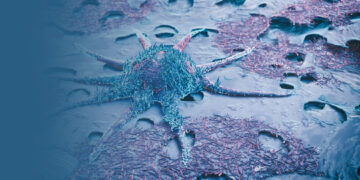
More to Learn from ESR1 Using ctDNA Analysis
Estrogen receptor 1 (ESR1) mutations in breast tumors were first identified nearly 30 years ago. Since then, technology has evolved, as has our understanding of the impact these mutations have on tumor cell physiology. Given the dynamic nature of ESR1 mutation acquisition and enrichment, ctDNA samples appear to be the most robust source for analysis. Droplet Digital PCR (ddPCR) enables rapid, highly sensitive, cost-effective analysis of ctDNA, providing a powerful tool for this critical area of cancer research.
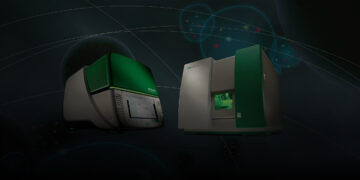
Faster PCR and Flow Cytometry Highlighted in Annual Lab Automation Roundup
The annual international Society for Laboratory Automation and Screening (SLAS) conference is the highlight of the year for scientists in academia, industry, and government focused on leveraging the power of automation to achieve scientific breakthroughs. Here are some highlights of this year’s conference and how Bio-Rad contributed to it.

Maximize Genomic Insights by Combining Molecular Profiling Methods
Dive into an in-depth exploration of the molecular methods for gene expression profiling — highlighting the strengths, applications, and uses of quantitative PCR (qPCR), Droplet Digital PCR (ddPCR), and RNA sequencing (RNA-Seq) technologies.
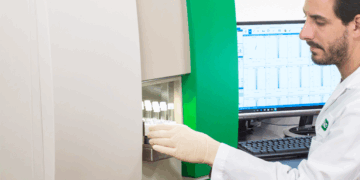
Flow Cytometry and the Law of Bottlenecks
Manufacturing and high-throughput screening may seem to have very little in common, but they are related at a fundamental level. Both seek to transform a raw material into a finished product, and both struggle with constraints, or bottlenecks, that reduce efficiency. How can we apply the revolutionary 20th century management principles of continuous improvement to 21st century flow cytometry?

Rising from the Ashes: The History of the 488 nm Laser
Despite the pivotal role of the 488 nm (blue) laser in the rise in popularity of flow cytometry, it experienced somewhat of a fall from grace following the shift to higher usage of the 561 nm (yellow) laser. However, with the advancement of flow cytometry leading to the use of more complex multicolor panels and ever-increasing fluorophore numbers per experiment, the blue laser is starting to make a comeback. Discover how StarBright Blue Dyes can help you make the most out of your 488 nm laser.
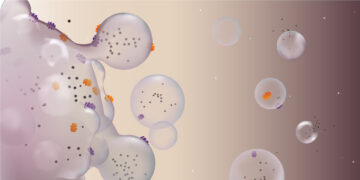
Nature’s Lipid Nanoparticles: Challenges and Opportunities in Isolation and Analysis of Extracellular Vesicles
In nature, mammalian extracellular vesicles (EVs) are vital for intercellular communication, immune responses, and cell removal. EVs also hold promise in diagnostics, therapeutics, and vaccine delivery due to their abundance and natural role as carriers. Explore how overcoming challenges in EV purification and precise RNA analysis methods can help unlock their potential applications.

Replication-Competent Virus Testing: A Critical Step in Cell and Gene Therapy Quality Control
Scientists commonly use lentiviruses and adeno-associated viruses (AAVs) as viral vectors in cell and gene therapy (CGT) production. However, therapies that use these viruses must undergo strict quality control measures, including testing for replication-competent viruses (RCV), to ensure that the treatment is safe. Cell culture-based methods are currently the gold standard for RCV testing, but it can take up to 45 days for results to be returned. Droplet Digital PCR (ddPCR) kits now offer an attractive orthogonal method.
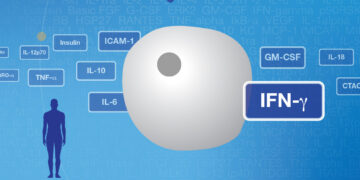
CAR T-Cell Therapy and the Cytokine Storm: The Balancing Act at the Center of Next-Generation Cancer Therapies
Recent advances in chimeric antigen receptor (CAR) T-cell therapy have opened exciting new avenues for the treatment of a variety of malignancies. Cytokine release syndrome (CRS), a powerful immune response to activated CAR T cells, is the primary side effect of CAR T-cell therapy, but existing CRS treatments can make CAR T-cell treatment less effective. In two recent studies, researchers used multiplexed cytokine immunoassays to better understand how CAR T-cell therapy triggers CRS and to identify strategies for early intervention in CRS development.
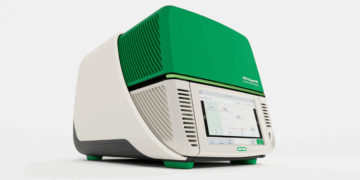
NalaGenetics Moves Pharmacogenomics from the Bench to the Clinic using qPCR: An Interview with Astrid Irwanto, Co-Founder and COO
Astrid Irwanto is the co-founder and COO of NalaGenetics, a company taking a novel, personalized approach to understanding genetic susceptibility to drug reactions in Southeast Asian populations. A PhD in human genetics and postdoctoral research in genetics disease, along with personal experiences, fuel Astrid’s pursuits. In this interview, we discuss NalaGenetics’ approach to pharmacogenomics and why Astrid decided to translate her academic research to a molecular diagnostics company.
